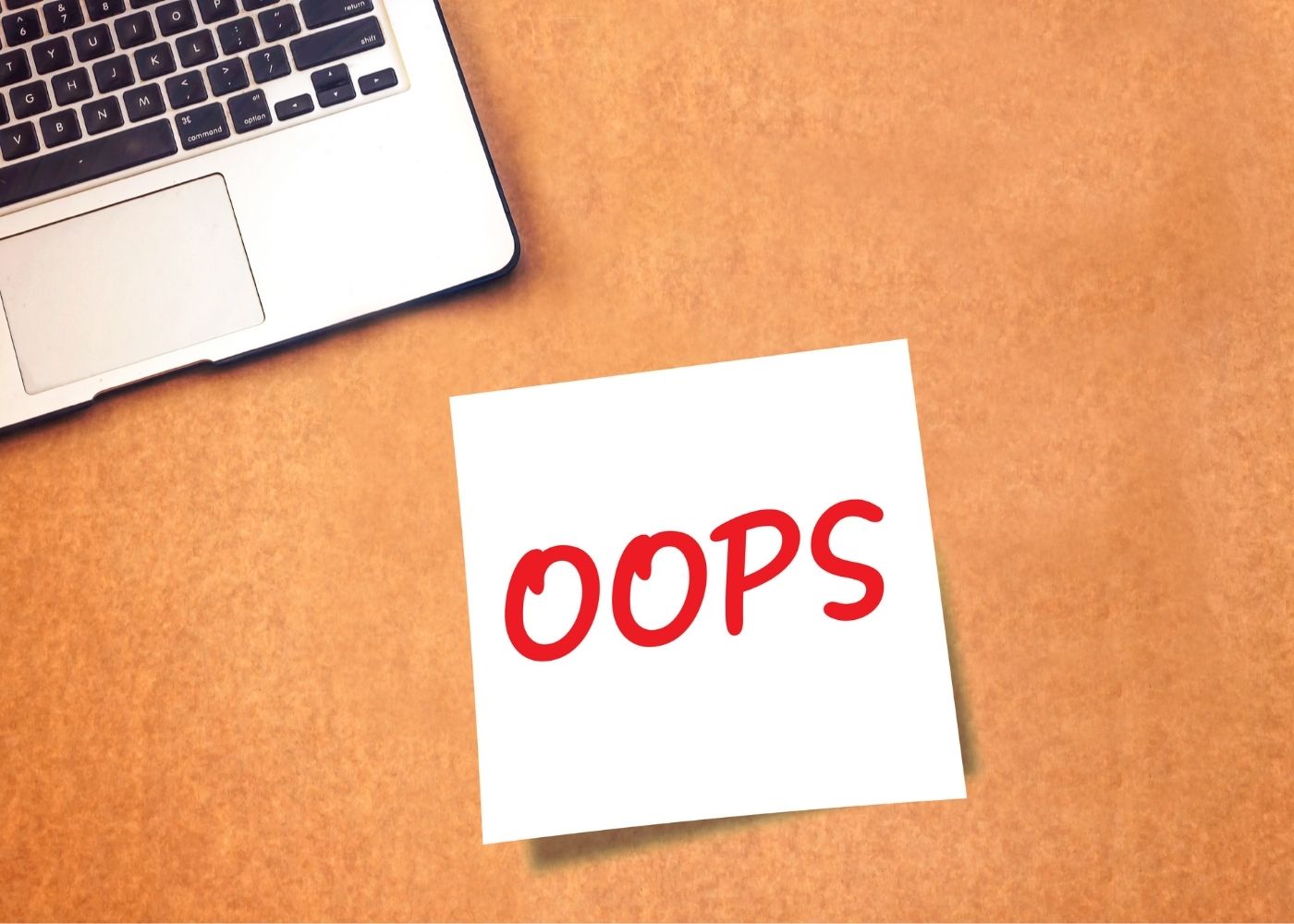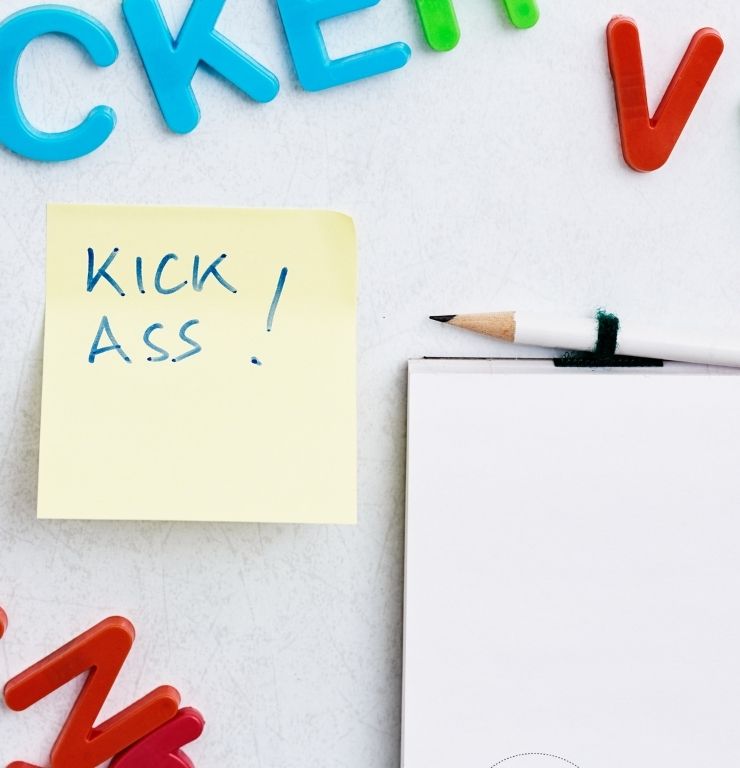
How what you wear speaks volumes
M
any years ago, I worked with a financial analyst in the energy sector. She was to deliver a presentation to four separate audiences in LA, and the topic was “Why I Never Bought Enron.” The people she would be addressing were shareholders and board members.
We had a slam-dunk report for them but she was uneasy. These were all Ivy-league types and she was the daughter of a detective, from Queens. She felt the difference, keenly.
So I suggested we style her as one of them: pearls, sweater set, black headband etc. I told her it would help her feel more at ease and it did the trick.
She was relaxed, thoroughly prepared and able to stay in the moment. She got spontaneous applause at 3 of the 4 meetings.
What you wear when you’re presenting matters quite a bit. Before you can open your mouth, your appearance is sending out messages. Make sure that you know what those messages are saying.

Public Speaking 101: Use Notes
D
o you believe that a speaker working without notes is therefore ‘better’ than one who does use notes? I ask because a lot of people ask me the same question. If you’re giving a presentation you have to decide for yourself, should you:
And that’s all it takes! Follow one or all of these and you’ll be giving it less than your best, and putting yourself through hell, and abusing the audience as well. Or, you can do the opposite and give yourself a fighting chance. More on that, anon.
- Try to memorize your notes / script.
- Read your notes.
- familiarize yourself, using notes.
Memorizing takes a lot of bandwidth, trust me. Unless you’re naturally good at it, or have very little to say, I advise not even worrying about it. You should do what supports you best when you’re on, and not concern yourself with how ‘notes/no notes’ looks to an audience. Are they engaged, is what you want to concern yourself with.
Reading your remarks is OK, but only if you’re really good at it. Most people don’t have the training to bring words on the page to life, which is an art. Professional narrators know how to employ the technique, so you can study up on them. One thing you should never read are PowerPoint slides.

This is my advice for the average speaker who wants to do the best possible job. The more you review your content and practice it, the better you’ll be able to fully own it during your actual delivery. Use notes that help keep you focused on your message, but also allow you to tune in to your audience. Make sure the font is larger than usual. Use color or images in the margins, for emotional cues.
People with little experience in public speaking in general tend to underestimate what goes into “extemporaneous” talking- unscripted and improvised. It might look easy but that’s the beauty of excellent communication- it all seems so simple.

How To Screw Up Your Presentation
H
ow to screw up your presentation:
- Procrastinate. Wait until the last possible minute to think about your message, your intention and your knowledge.
- Once you’re good and nervous because you’ve waited so long, sit down in front of the computer to write your speech.
- Start typing whatever comes to mind. Spill it all out onto the page.
- Print it out in a size 10 or 12 font.
- Don’t rehearse. Don’t get to know it, or to own it. Just read through it to yourself.
- Drink lots of coffee on the day you present.
- Grab whatever clothes you want and same with shoes.
- Manage your stage fright by imagining your audience in their underwear.
- Start by telling everyone how nervous you are.
- Speak as quickly as possible, to get it over with.
And that’s all it takes! Follow one or all of these and you’ll be giving it less than your best, and putting yourself through hell, and abusing the audience as well. Or, you can do the opposite and give yourself a fighting chance. More on that, anon.

Stage Fright.
“You manage your emotions or your emotions will manage you.” Basketball coach John Wooden
“You manage your stage fright or your stage fright will manage you.” Public Speaking coach Katie Karlovitz
There’s nothing worse than the terror of being in front of an audience and feeling helpless and out of control. Stress tests have clinically shown that the fear of going on stage equals the fear of going into battle, which explains the “fight or flight” response that so often kicks in before giving a speech. It’s time to confront this head on, because too many good people are being silent when they should be speaking up.

The first thing to understand is that this fear is a type of energy…nothing more or less. Einstein said “All is energy” and he was right. Unfortunately, many people are obsessing over the very thing they wish to avoid, which is a holy terror at being under the spotlight. But the law of attraction dictates that public speaking hell is exactly where they’re heading because that’s where their thoughts lead them.
So the challenge lies in handling the strong physical, mental, and emotional components that are acting on us; by harnessing the energy of fear we can re-direct it and point it squarely at what we want to happen, in this case, giving a confident delivery. Here are the antidotes to the toxic forces in play:
- Physical- the first, best defense is to get your breath under control. Once you do that, the rest of the body has no choice but to follow along. When we’re scared, our breathing becomes shallow, short and gulping for air. By slowing it down, we are able to manage it. Drop down into deep breaths from the diaphragm, inhaling on a slow count of five, holding that breath for five, and then releasing on a slow, controlled count of five. Repeat until you feel grounded and calm.
- Limit your caffeine on days that you’ll be presenting-you don’t need it on top of the adrenaline you’ll be releasing into your bloodstream. Same with sugar…you don’t want anything to be spiking your levels.
- Your mental game needs to be strong-this isn’t the time to allow stray thoughts in, because they can too easily be negative or judgmental and this will only get in your way. Stay firmly focused on your message, whatever it is that you believe is imperative to tell your audience. You can’t tell them everything you know, so make every point matter, stay in the moment and don’t get ahead of yourself.
- Emotional support is another key to handling yourself. Create a mantra that perfectly captures the results you’re aiming for. “I am cool, collected and confident.” “My message and my integrity are clear.” Try assuming an avatar that embodies the qualities you admire…it’s role play and can be effective and fun, too.
Coach Wooden got such spectacular results from his players because he knew how to focus their energies. He never emphasized game results, rather just playing to the best of each person’s ability. He made sure they were well-prepared, so they wouldn’t have to over-think things once on the basketball court.
This is the strategy I use when coaching people, and it works. Place your energy on your preparation, and the nerves will be put in their proper perspective and almost take care of themselves.

Can We Stop With the #@! kick-a–Nonsense?
There’s a trend in coaching and other types of entrepreneurial endeavors to title workshops, seminars, classes etc. using mild profanity. I suspect this is meant to convey a saucy dis-regard for convention. Instead of calling my workshop “Signature Talks to Grow Your Business” why not flash my sass and call it “Kick-Ass Keynotes to Bring Them to Their @#$ Knees?”

I’ll tell you why not-first, it sounds juvenile- as if I’m 13 years old and trying out the naughty words to see what kind of effect it has on the grown ups. It’s playing at mild shock value. As my close friends can attest, I love to swear on occasion, using curses far more blue than “kick-ass.” It’s fun to mix it up. But it’s organic and appropriate to the moment, not contrived to be clever in business.
Second, anytime I spot a trend in communicating that everyone is employing, that’s reason enough for me not to do it. Our speech should express our genuine thinking, not copy the vanilla choices that everyone is making.
Which is why the naughty girl talk looks all the sillier-it’s not even original. That’s the real problem right there. If you’re a coach, or business owner, you’d better be able to think and speak for yourself. Until you can, give careful thought to the bandwagon you’re climbing on. It might not be headed where you want to go.
